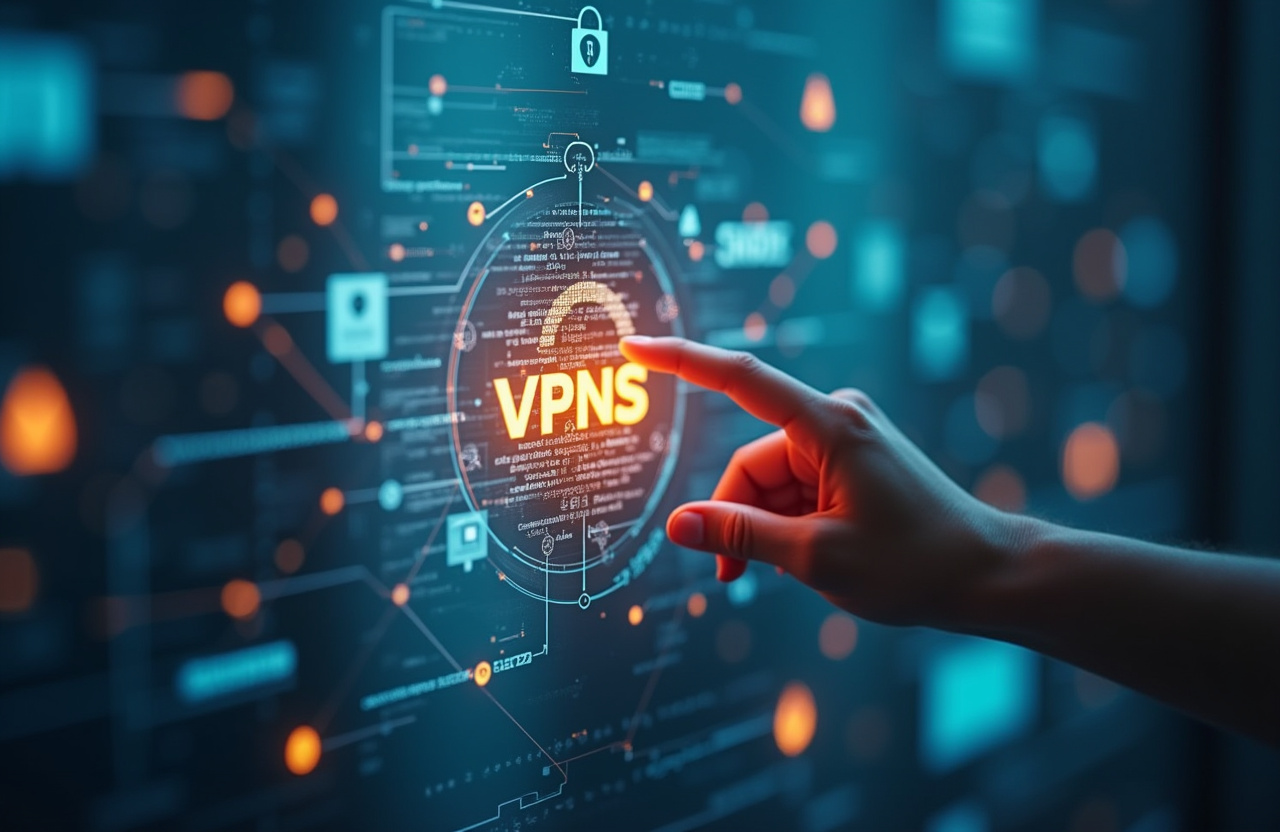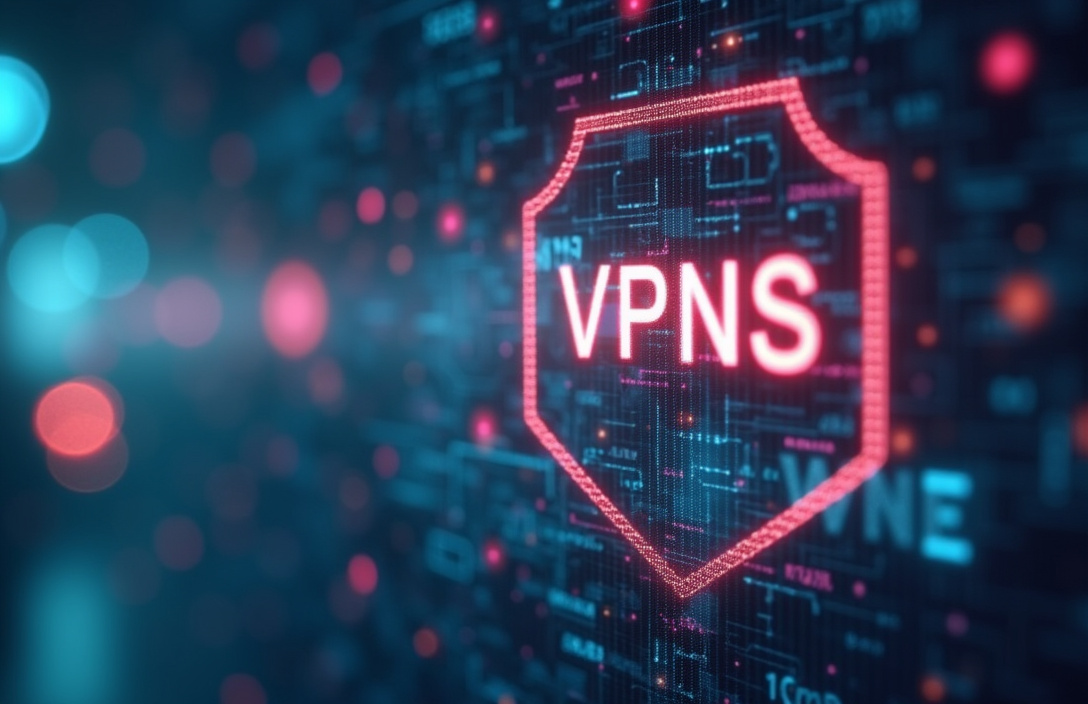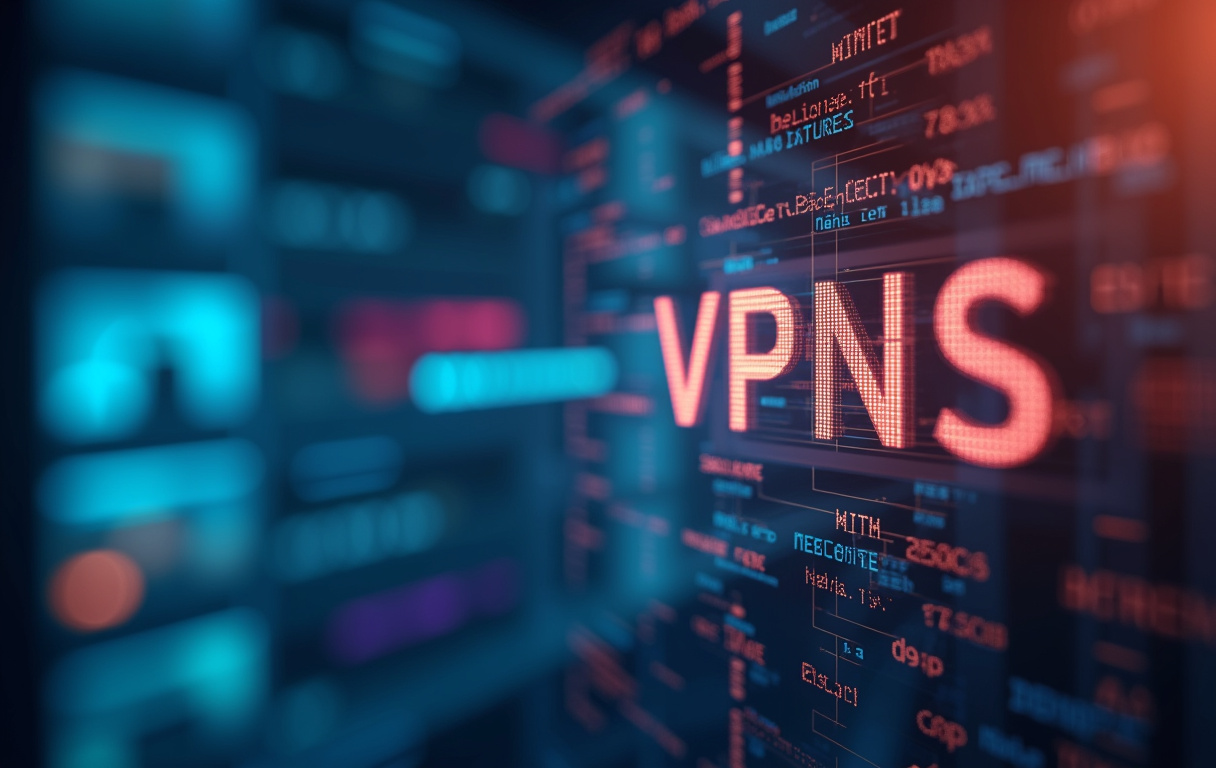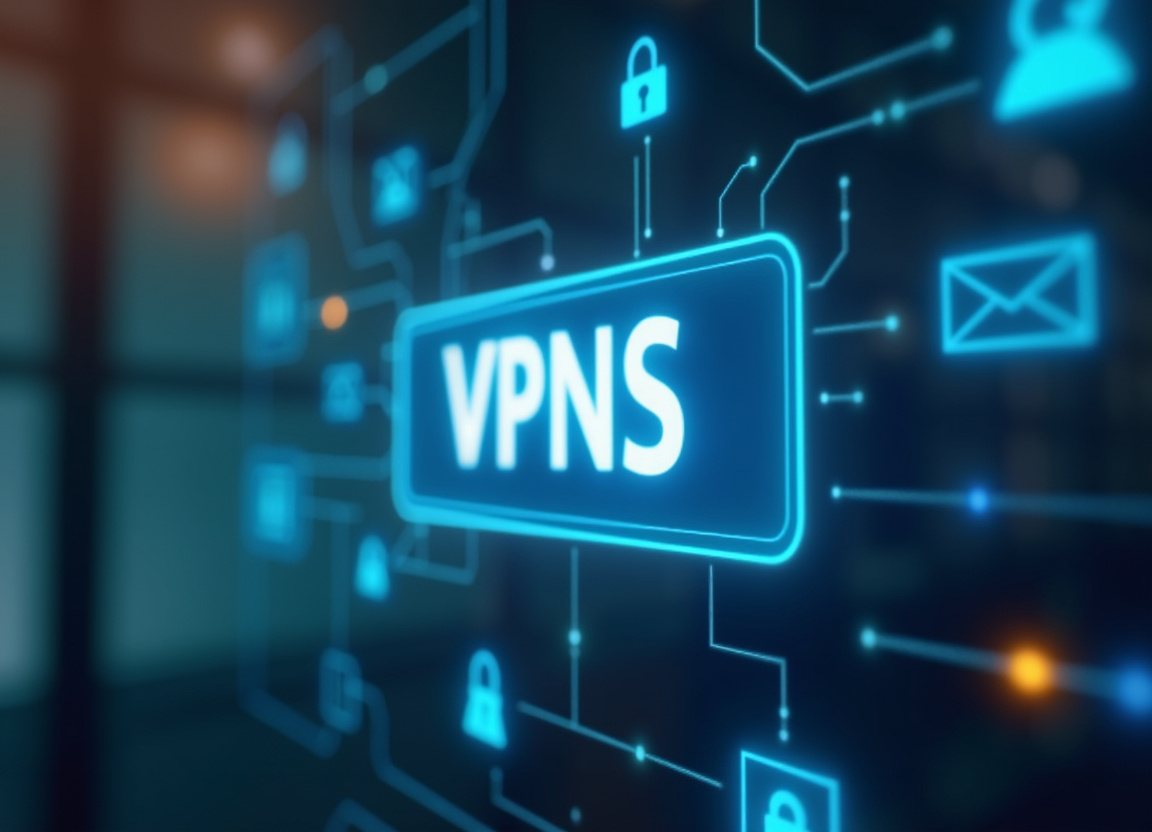VPNs for Transportation Services: Securing Logistic Operations
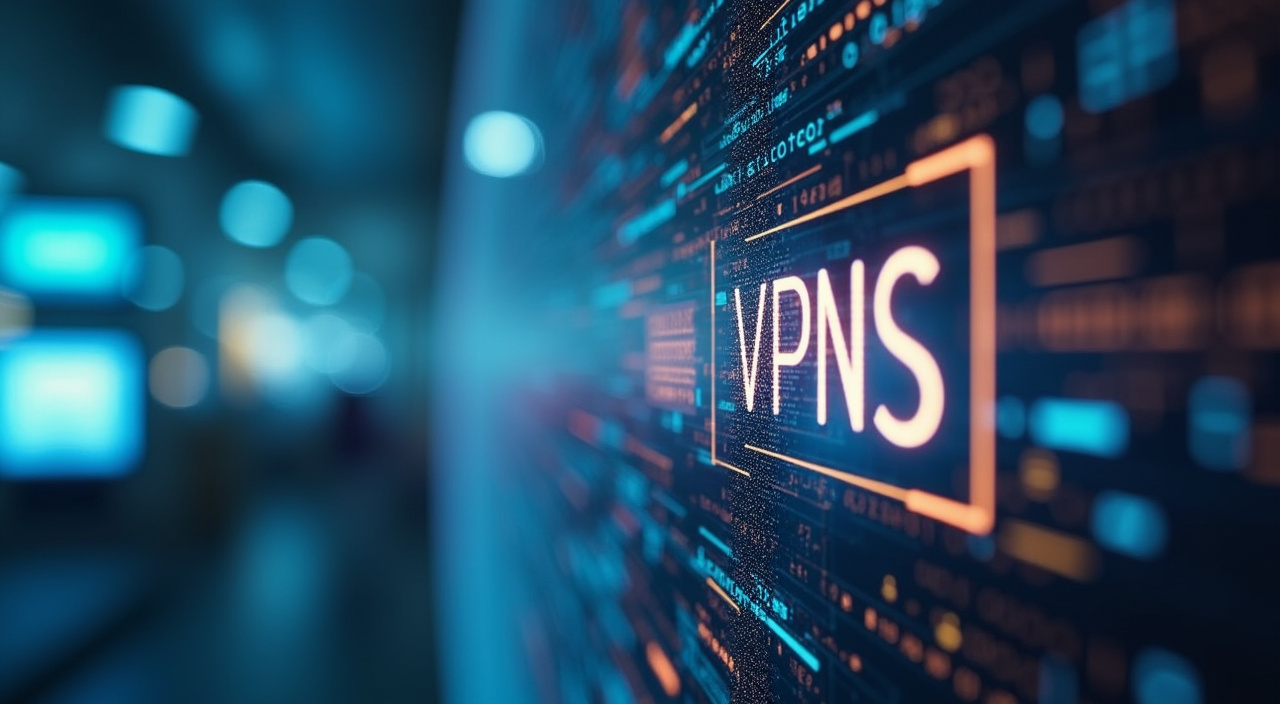
Table of Contents
transportation VPN
In today's hyper-connected world, the transportation and logistics industry relies heavily on digital communication and data exchange to manage complex supply chains, track shipments, and coordinate operations. From the moment a product leaves its origin point to the instant it arrives at its final destination, a constant stream of data is generated, transmitted, and analyzed. This data fuels critical processes, enabling real-time visibility, optimized routing, and efficient resource allocation.
However, this increased reliance on technology also exposes the industry to a myriad of cyber threats, ranging from data breaches and malware attacks to ransomware and espionage. The consequences of these attacks can be devastating, leading to financial losses, reputational damage, operational disruptions, and even physical harm. To safeguard sensitive information, maintain operational efficiency, and ensure business continuity, transportation and logistics companies are increasingly turning to Virtual Private Networks (VPNs) for enhanced security.
This article delves into the critical role of VPNs in securing logistic operations, exploring how these technologies protect data integrity, ensure communication protection, and contribute to overall operational efficiency. A creates a secure, encrypted tunnel for data transmission, shielding critical information from prying eyes and malicious actors. Imagine this tunnel as a private, impenetrable highway for your data, shielded from the prying eyes and potential interceptions of the public internet.
This is crucial in an industry where real-time tracking data, shipping manifests, customer information, and financial transactions are constantly being exchanged between various stakeholders – from manufacturers and distributors to carriers and customers. Each of these data points represents a potential vulnerability, a point of access that malicious actors could exploit. The protection offered by a VPN extends beyond simply encrypting data; it also masks the user's IP address, making it more difficult for attackers to identify and target specific systems or networks.
It essentially cloaks the user's online identity, making it harder for attackers to trace their activity back to a specific device or location. This is particularly important for companies with mobile workforces, such as truck drivers, delivery personnel, and field service technicians who often access company networks from public Wi-Fi hotspots, which are notoriously vulnerable to cyberattacks. These public networks often lack proper security protocols, making them easy targets for hackers looking to steal data or inject malware.
By implementing a robust , companies can significantly reduce their risk exposure and protect their valuable assets, ensuring that even when employees are using unsecured networks, their connection to the company remains secure. The need for enhanced stems from the complex nature of modern supply chains, which often involve numerous third-party vendors, partners, and intermediaries spread across different geographical locations. Each entity in the chain has its own security protocols, creating a heterogeneous environment with varying levels of protection.
Each point of contact represents a potential vulnerability that can be exploited by attackers. A VPN provides a secure and reliable means of communication and data exchange between all stakeholders, ensuring that sensitive information remains protected throughout the entire logistics process, regardless of the security measures implemented by individual partners. This is especially critical when dealing with high-value goods, confidential product designs, or sensitive customer data, where the potential consequences of a breach could be catastrophic.
Furthermore, VPNs can help companies comply with industry regulations and data privacy laws, such as GDPR and CCPA, which mandate the protection of personal data. These laws impose strict requirements on how companies collect, use, and protect personal information. Failure to comply with these regulations can result in hefty fines and reputational damage, eroding customer trust and impacting business operations.
By implementing a VPN, transportation and logistics companies can demonstrate their commitment to data security and privacy, building trust with customers and partners, and mitigating the risk of regulatory penalties. In addition to enhancing security, VPNs can also improve operational efficiency by providing access to geo-restricted content and resources. For example, a transportation company operating in multiple countries may need to access specific websites or applications that are only available in certain regions due to licensing agreements or local regulations.
A VPN allows users to bypass these restrictions, ensuring seamless access to the information and tools they need to do their jobs, regardless of their location. Moreover, VPNs can help optimize network performance by routing traffic through faster and more reliable servers, reducing latency and improving overall connectivity, resulting in smoother operations and improved productivity.
transportation VPN
The core benefit of a lies in its ability to provide robust . In the logistics industry, communication is constant and multifaceted, involving the exchange of sensitive data between headquarters, warehouses, drivers, and clients. This communication encompasses a wide range of information, from shipment tracking details and delivery schedules to financial transactions and confidential contracts.
Often, this communication occurs over unsecured networks, whether it's a driver using a public Wi-Fi hotspot at a truck stop or a remote warehouse accessing the company's central database. This reliance on unprotected channels makes sensitive information vulnerable to interception by malicious actors who could eavesdrop on communications, steal credentials, or inject malicious code into the data stream. A VPN encrypts all data transmitted through the network, ensuring that only authorized parties can access the information.
This encryption transforms the data into an unreadable format, a jumbled mess of characters that is virtually impossible for unauthorized users to decipher, even if they manage to intercept the communication. This is particularly important for companies that handle sensitive goods, such as pharmaceuticals or high-tech equipment, or operate in highly competitive markets, where the theft of confidential information like pricing strategies or customer lists could have significant financial and reputational consequences. Moreover, a helps to prevent man-in-the-middle attacks, a sophisticated type of cyberattack where attackers intercept and alter communications between two parties without their knowledge.
In this scenario, the attacker inserts themselves into the communication stream, acting as an intermediary between the sender and receiver. They can then intercept sensitive data, such as login credentials or financial information, and potentially modify the communication, for example, by changing the payment details on an invoice. By encrypting the data stream, a VPN ensures that any intercepted data is unreadable and useless to the attacker, even if they manage to insert themselves into the communication channel.
This provides an added layer of security against eavesdropping and data tampering, significantly reducing the risk of successful man-in-the-middle attacks. In addition to encryption, a VPN also provides authentication mechanisms to verify the identity of users and devices connecting to the network. This ensures that only authorized individuals and devices, those that have been properly vetted and authenticated, can access sensitive information.
Authentication methods can include traditional passwords, which should be strong and regularly updated, multi-factor authentication (MFA), which adds an extra layer of security, and digital certificates, which provide a more robust form of identification. Multi-factor authentication adds an extra layer of security by requiring users to provide two or more forms of identification, such as a password and a one-time code sent to their mobile device or a biometric scan. This makes it significantly more difficult for attackers to gain unauthorized access, even if they manage to steal a user's password.
Digital certificates are electronic credentials that verify the identity of a user or device. These certificates are issued by trusted certificate authorities and are virtually impossible to forge. By implementing strong authentication measures, companies can prevent unauthorized access to their networks and data, limiting the potential for breaches and insider threats.
Beyond security, VPNs also enhance by masking the IP addresses of users and devices. This makes it more difficult for attackers to track and identify specific systems or networks, hindering their ability to launch targeted attacks. Hiding IP addresses helps to protect against targeted attacks, such as denial-of-service (DoS) attacks, which can overwhelm a network with traffic, disrupting services and causing significant downtime.
Furthermore, VPNs can help to bypass censorship and geographic restrictions, allowing users to access information and resources that may be blocked in certain regions due to government regulations or corporate policies. This is particularly important for transportation companies that operate in countries with strict internet censorship policies or have employees traveling to such regions. By using a VPN, employees can access critical information and communicate with colleagues and clients without fear of censorship or surveillance, ensuring business continuity and seamless collaboration.
The benefits of a VPN extend beyond traditional computer networks. VPNs can also be used to secure mobile devices, such as smartphones and tablets, which are increasingly used by transportation workers for tasks such as tracking shipments, managing deliveries, and communicating with headquarters. By installing a VPN app on their mobile devices, employees can ensure that all communications are encrypted and protected, even when using public Wi-Fi hotspots or other unsecured networks, providing a consistent level of security across all devices.
Data integrity
is paramount in the transportation and logistics sector, where the accuracy and reliability of information are essential for efficient operations and informed decision-making. Every stage of the supply chain, from order placement to final delivery, relies on the seamless flow of accurate data. Inaccurate or compromised data can lead to a cascade of problems, including shipment delays, incorrect deliveries, inventory discrepancies, financial losses, and even regulatory penalties.
Imagine a scenario where shipment tracking data is altered, causing a delivery to be misrouted or delayed. This could result in missed deadlines, dissatisfied customers, and ultimately, damage to the company's reputation. Similarly, if financial data is tampered with, it could lead to incorrect invoices, payment errors, and even fraud.
Therefore, maintaining is not just a technical issue; it's a critical business imperative. A plays a crucial role in maintaining by ensuring that data is transmitted securely and without alteration. This is achieved through a combination of encryption, authentication, and integrity checks, which work together to protect data from unauthorized access and modification.
Encryption, as discussed previously, protects data from unauthorized access by rendering it unreadable to anyone who does not possess the decryption key. However, it also helps to maintain by preventing attackers from tampering with the data in transit. If an attacker were to intercept encrypted data and attempt to modify it, the encryption would be corrupted, rendering the data unreadable and unusable.
This effectively thwarts any attempt to alter the data, ensuring that only the original, unaltered data is received by the intended recipient. Authentication ensures that only authorized users and devices can access and transmit data. This helps to prevent unauthorized modifications or deletions of data by individuals or systems that should not have access to it.
Strong authentication mechanisms, such as multi-factor authentication, ensure that only legitimate users can connect to the network and access sensitive information, reducing the risk of insider threats or compromised accounts. In addition to encryption and authentication, VPNs often incorporate integrity checks to verify that data has not been altered during transmission. These checks involve calculating a checksum or hash value for the data before it is transmitted and then recalculating the checksum or hash value after it is received.
If the two values match, it confirms that the data has not been altered in transit. If the values do not match, it indicates that the data has been tampered with, and the receiving system can take appropriate action, such as rejecting the data or alerting administrators. These integrity checks provide an additional layer of protection against data corruption or malicious modification.
Beyond protecting data in transit, VPNs can also contribute to by providing secure access to data storage systems. By encrypting the connection between users and data storage servers, VPNs prevent unauthorized access to sensitive data at rest. This is particularly important for companies that store data in the cloud or on remote servers, where the risk of unauthorized access is higher.
By using a VPN, companies can ensure that their data remains protected, even when it is stored outside of their physical control. Furthermore, VPNs can help companies comply with data integrity regulations, such as those imposed by the FDA for pharmaceutical companies or by financial regulators for financial institutions. These regulations often require companies to implement measures to ensure the accuracy and reliability of their data.
By implementing a VPN with robust security features, companies can demonstrate their commitment to data integrity and comply with these regulatory requirements. A robust solution should also include logging and auditing capabilities. Detailed logs can track who accessed what data, when, and from where.
This audit trail is invaluable for investigating data breaches, identifying potential security vulnerabilities, and demonstrating compliance with regulatory requirements. Regular audits of these logs can help uncover suspicious activity and prevent future incidents. In conclusion, a VPN is an essential tool for maintaining in the transportation and logistics industry.
By encrypting data in transit and at rest, authenticating users, implementing integrity checks, and providing logging and auditing capabilities, VPNs help to protect sensitive data from unauthorized access, modification, and deletion, ensuring the accuracy and reliability of information across the entire supply chain.
VPN for logistics
Beyond the fundamental security benefits of encrypted communication and enhanced data integrity, a well-implemented contributes significantly to the overall operational efficiency of transportation services. This is achieved through several key mechanisms, including improved network performance, streamlined access to resources, and enhanced mobility for a distributed workforce. Consider the often-complex logistics operations involving multiple parties across different geographic locations.
Access to shared databases, real-time tracking systems, and collaborative platforms is crucial for things to run smoothly. However, these geographically dispersed networks often suffer from latency issues, bandwidth limitations, and inconsistent connectivity, all of which can impede productivity and create bottlenecks in the supply chain. A strategically deployed can mitigate many of these challenges, optimizing network performance and enabling smoother, more efficient operations.
One way a VPN enhances efficiency is by providing optimized routing for network traffic. Instead of relying on the default internet pathways, which can be congested and unreliable, a VPN can route traffic through its own network of servers, often selecting the most efficient path to the destination. This can result in reduced latency, faster data transfer speeds, and improved overall network performance, particularly for users connecting from remote locations or over unreliable internet connections.
Imagine a scenario where a truck driver in a rural area with limited internet access needs to upload a large delivery manifest. Without a VPN, the upload process could be slow and unreliable, potentially delaying the driver and impacting the overall delivery schedule. With a VPN, the driver's traffic can be routed through a server closer to their location, providing a faster and more reliable connection, ensuring that the manifest is uploaded quickly and efficiently.
Additionally, a VPN can provide streamlined access to internal resources and applications for remote workers. In the transportation and logistics industry, many employees, such as truck drivers, delivery personnel, and field service technicians, work remotely and need to access company systems and data from various locations. A VPN provides a secure and reliable connection to these resources, regardless of the user's location or internet connection, allowing them to access the information and tools they need to do their jobs effectively.
This can include access to shipping manifests, inventory databases, customer relationship management (CRM) systems, and other critical applications. By providing seamless access to these resources, a VPN empowers remote workers to be more productive and efficient, enabling them to perform their tasks from anywhere with an internet connection. This is particularly important in today's increasingly mobile workforce, where employees need to be able to work from anywhere, at any time.
Moreover, a VPN can facilitate collaboration between different teams and departments within a transportation company, regardless of their physical location. By providing a secure and reliable connection to shared resources, a VPN enables teams to work together more effectively, sharing information, coordinating activities, and making decisions in a timely manner. This can lead to improved communication, better coordination, and ultimately, more efficient operations.
For example, a VPN can enable a team of dispatchers in one location to communicate with drivers in another location, sharing real-time traffic updates, delivery instructions, and other critical information. This can help to optimize routes, avoid delays, and ensure that deliveries are made on time. The offered ensures that sensitive data exchanged during this process remains secure.
Furthermore, the secure access facilitated by a VPN is crucial for integrating new technologies like IoT (Internet of Things) devices into logistic operations. These devices, used for tracking vehicles, monitoring cargo conditions, and automating various processes, often transmit sensitive data. A transportation VPN provides a secure channel for this data transmission, safeguarding it from unauthorized access ensuring that operational is maintained.
In summary, a VPN is not just a security tool; it's a strategic asset that can enhance the operational efficiency of transportation services. By optimizing network performance, streamlining access to resources, facilitating collaboration, and enabling mobility, a VPN empowers transportation companies to operate more efficiently, reduce costs, and improve customer satisfaction.
VPN for logistics
In conclusion, the adoption of a robust is no longer a mere option, but a critical necessity for transportation services operating in today's complex and interconnected digital landscape. The ever-increasing sophistication of cyber threats, coupled with the growing reliance on digital communication and data exchange, demands a proactive and comprehensive approach to security. A VPN provides a multi-layered defense mechanism that protects sensitive information, ensures communication protection, maintains data integrity, and enhances operational efficiency.
From securing mobile workforces connecting via public Wi-Fi to safeguarding sensitive financial transactions and ensuring compliance with data privacy regulations, the benefits of a VPN are far-reaching and impactful. The initial investment in a VPN solution is easily justified by the significant reduction in risk exposure and the potential for improved operational performance. Consider the potential costs associated with a data breach, including financial losses, reputational damage, legal fees, and regulatory fines.
A single data breach could cost a transportation company millions of dollars and severely damage its reputation, potentially leading to a loss of customers and market share. By investing in a VPN, companies can significantly reduce the likelihood of a data breach, protecting themselves from these potentially devastating consequences. Furthermore, a well-implemented VPN strategy extends beyond simply deploying the technology.
It requires a holistic approach that includes employee training, regular security audits, and ongoing monitoring. Employees need to be trained on how to use the VPN properly and how to identify and avoid potential security threats, such as phishing scams and malware attacks. Regular security audits should be conducted to assess the effectiveness of the VPN and identify any potential vulnerabilities.
Ongoing monitoring is essential to detect and respond to any suspicious activity in real-time. Selecting the right VPN solution is also crucial. There are numerous VPN providers on the market, each offering different features, performance characteristics, and pricing models.
It is important to choose a VPN provider that is reputable, reliable, and offers the features and performance necessary to meet the specific needs of the transportation service. Factors to consider when choosing a VPN provider include the level of encryption used, the number and location of servers, the speed and reliability of the network, the availability of customer support, and the provider's privacy policy. Opting for a provider with a proven track record of security and reliability is paramount.
Looking ahead, the role of VPNs in transportation services is only likely to grow in importance. As the industry continues to embrace new technologies, such as IoT, artificial intelligence, and blockchain, the need for robust security measures will become even more critical. VPNs will play a key role in securing these new technologies, protecting sensitive data, and ensuring the reliability and integrity of operations.
The increasing adoption of cloud-based logistics platforms further necessitates the implementation of a strong to safeguard data transmitted to and from the cloud. Moreover, as data privacy regulations become more stringent, VPNs will become increasingly important for ensuring compliance and maintaining customer trust. Companies that prioritize security and invest in a robust VPN solution will be well-positioned to thrive in the increasingly competitive and complex transportation landscape.
Those that neglect security risk falling behind, suffering financial losses, and damaging their reputations. The value lies not just in immediate security benefits, but also in building a resilient and future-proof infrastructure that can adapt to evolving cyber threats and support long-term growth and success. Therefore, embracing a comprehensive strategy with a VPN at its core is an investment in the future of transportation services.
Stay Updated
Get the latest VPN news, tips, and exclusive deals to your inbox.

